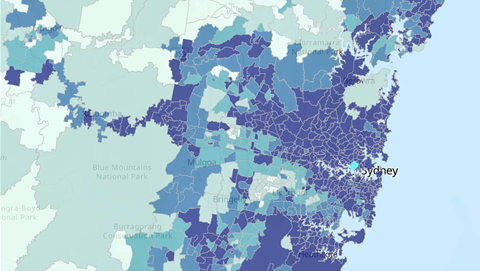Telcos on both sides of the Tasman have pushed against proposals aimed at reducing the cost of mobile roaming between Australia and New Zealand, claiming competitive forces are enough to push down prices.

Governments in both countries jointly presented seven options in late August to spur price changes for the estimated two million visitors transiting between country borders every year, including threats of legislated price caps, regulation on wholesale roaming charges or, more controversially, allowing users to choose a different mobile carrier when roaming.
Australian telcos already face a threat of greater regulation from the Australian Communications and Media Authority, which has begun consulting on a new standard that will ultimately require telcos to provide more information on roaming charges to users while overseas.
But mobile carriers argued that market competition was enough to drive down prices without further regulation.
"Optus accepts that there is a problem in relation to [international roaming] services and this relates to a lack of consumer information," the Australian telco argued (pdf).
"Optus is not arguing that we, or the industry, have perfected the nature of customer awareness for [roaming], but there is a clear trend towards enhancing awareness and ensuring customers are fully informed as to the use and cost ... this enables customers to make individual decisions as to which service they wish to use in order to access communication services while travelling abroad."
New Zealand's largest mobile carrier, Vodafone New Zealand, said that three tenets required to reduce the shock of international roaming — competitive retail pricing, protections against 'bill shock' and transparent roaming terms — were all already present in the current trans-Tasman market (pdf).
It said that any assertion prices were currently high was "difficult to justify", as they were not comparable to local mobile pricing.
Telcos jumped on a concession in a draft report released by the governments in August that suggested any differences between retail roaming prices and its own economic modelling was "not necessarily evidence of market failure", as evidence that government moves were largely unnecessary.
Traditional incumbent Telecom NZ and relative Kiwi newcomer 2degrees separately argued that the roaming market in New Zealand was relatively immature, as the country had only effectively allowed for competitive deals for the past three years due to technological differences in mobile networks. As a result, the government proposals were premature, they said.
"The clear evidence is that since the market structure changed in 2009 (with Telecom and Two degrees entering the New Zealand roaming market) competitive outcomes have flowed," Telecom argued (pdf).
It insisted that any moves to impose direct regulatory control over the market would be substantially intrusive, cost millions and provide "uncertain benefits to consumers".
2degrees' director of corporate affairs and wholesale, Mat Bollands, said in a submission to New Zealand's Ministry of Business, Innovation and Employment that "the costs of regulation would be punitive to a smaller operator such as 2degrees at a time when it is investing in the network and services that will improve its ability to compete and innovate" (pdf).
The telco also suggested the NZ Government focus on "developing competition in the domestic market" rather than cross-border regulation.
But consumer groups decried the ongoing price squeeze of carriers between two geographically close and culturally similar countries.
The Telecommunications Users Association of New Zealand, alongside the Australian Communications Consumer Action Network, both called for immediate action on the issue.
"Simply put, customers face a situation where something that is cheaply and freely available, often treated as a giveaway product, could potentially cost as much as a car when travelling overseas," TUANZ said in its submission (pdf).
It also suggested the rather ambitious notion of "simply doing away with the concept of roaming altogether" and requiring carriers to provide flat pricing based on use either domestically or elsewhere around the world.
Further submissions are expected to be made by Telstra and Vodafone Hutchison Australia in the coming week.
Unbundling
One of the more controversial proposals — unbundling local mobile services from the trans-Tasman mobile operator designated by the user's existing carrier — was blasted by all three major New Zealand carriers as well as Optus and international mobile body GSMA, which criticised the option as "costly, untried" and risky.
The issue has been the centre of discussion between the Australian and New Zealand Governments and industry for some time, with consideration of the issue in the current context first reported in February.
A similar proposal has been mandated by the European Union to be implemented between member countries by 2014, something the Australia/New Zealand report noted would likely be in the "low single digit million Euro figure" for some telcos.
But local telcos argued the proposal would increase complexity in billing, service and payments without necessarily lowering prices.
ACCAN (pdf) also suggested that the temporary porting process could become complicated for end-users in choosing a specific roaming carrier without sufficient information.
The option appeared most favourable to TUANZ, which said that the move to an all-IP environment under LTE networks would make it easier to facilitate if required.

























